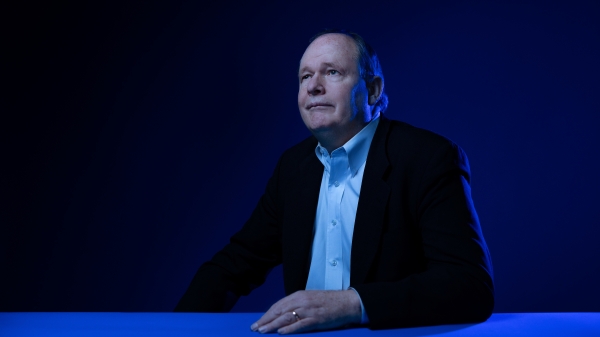On Tuesday, Jan. 4, President Barack Obama described his executive action on new gun-control measures, focusing on background checks and tracking weapons sales. News organizations began counting down to the Thursday night town hall on the measures almost immediately. The issue is a hot topic, and divisive in American politics: How much control is too much?
Erik Luna, professor of criminal law at the ASU Sandra Day O'Connor College of Law and resident expert on the Second Amendment, tackles some of the questions at forefront of mind.
Question: The question on everyone’s mind: Is President Obama stretching the limits of executive action?
Answer: The actions have been pitched as clarifying and enforcing current law, not crafting new law. But, of course, the interpretation of existing provisions can be so unfaithful to the text and context of a statutory scheme as to have the effect of new “law.”
What can be said is the following:
1. We should expect gun-rights advocates to litigate every legal issue raised by President Obama’s actions. Some pressure points will include the Administration’s interpretation of who qualifies as a gun dealer (“engaged in the business” of dealing in firearms) for purposes of federal law.
2. America’s chief executives during this millennium, Presidents Bush and Obama, have opened new vistas of presidential power. Both adopted broad interpretations of their authority in counterterrorism efforts. In addition, President Bush had the habit of using “signing statements” to assert his right to ignore or not enforce laws enacted by Congress, while President Obama’s refusal to take action against illegal immigrants under his DACA policy (Deferred Action for Childhood Arrivals) stretched the traditional understanding of “prosecutorial discretion.” In the end, whether someone agrees or disagrees with a particular executive action will likely reflect their normative commitments (e.g., gun rights vs. gun control, someone’s stance on immigration policy, etc.). But the precedent set by these (in)actions is unnerving for those concerned about constitutional structure, the limits of the president’s authority, and his duty to “take Care that the Laws be faithfully executed.”
Q: What’s the legal culture around this issue like? Does the SCOTUS’ 2010 ruling on gun ownership make these new restrictions more difficult?
A: When I heard President Obama say the following — “I believe in the Second Amendment. It is there, written on the paper. It guarantees a right to bear arms.” — I almost spit out my coffee. I cannot imagine that an unreconstructed political liberal like the president actually believes in the Second Amendment, by which I mean not only the text of the constitutional provision but also its current interpretation by the Supreme Court. In District of Columbia v. Heller (2010), the Court ruled that the Second Amendment conferred an individual right to keep and bear arms, rather than a collective (and thus largely non-litigable) right to possess and carry a firearm in connection with militia service. In turn, the Court in McDonald v. Chicago (2010) held that the Second Amendment was fully applicable to the states. If you think that President Obama “believes in” (i.e., supported) either of these rulings, I’ve got a bridge I’d like to sell you.
Nonetheless, it seems unlikely that the president’s actions (at least as they have been outlined to this point) would be deemed by the courts to violate the Second Amendment. The decisions in "Heller" and "McDonald" concerned absolute bans on handguns possessed for self-defense in the home — an issue which is not obviously implicated by the president’s actions — and the Supreme Court went out of the way to emphasize the limited nature of its opinions.
Q: Politically, it has been historically noted that gun control has motivated those on the anti-control side more than pro-control side. Will this deprive the president and others of the political capital to enact tougher regulations?
A: It’s not clear that the president even has the capital to effect the plan he outlined, let alone genuinely tough gun restrictions, at least to the extent that any critical component depends on congressional action. Apparently, for example, President Obama will request that Congress fund the hiring of new government employees to conduct gun-related investigations. It would not surprise me if a significant number of federal lawmakers, perhaps a majority, reject the president’s request.
Q: Arizona is among the states with comparatively more relaxed laws, including concealed carry without requiring a permit. Will Arizonans feel much of an effect from these changes?
A: Probably not, unless the president’s actions portend a vast increase in federal enforcement activity in Arizona.
More Law, journalism and politics

New online certificate prepares grad students for complex challenges of US democracy
If United States politics in the 2020s have revealed anything so far, it’s that the U.S. has a complex history with ramifications…

Reporting live from Paris: ASU journalism students to cover Olympic Games
To hear the word Paris is to think of picnics at the base of the Eiffel Tower, long afternoons spent in the Louvre and boat rides…

Exploring the intersection of law and technology
Editor's note: This expert Q&A is part of our “AI is everywhere ... now what?” special project exploring the potential (and…